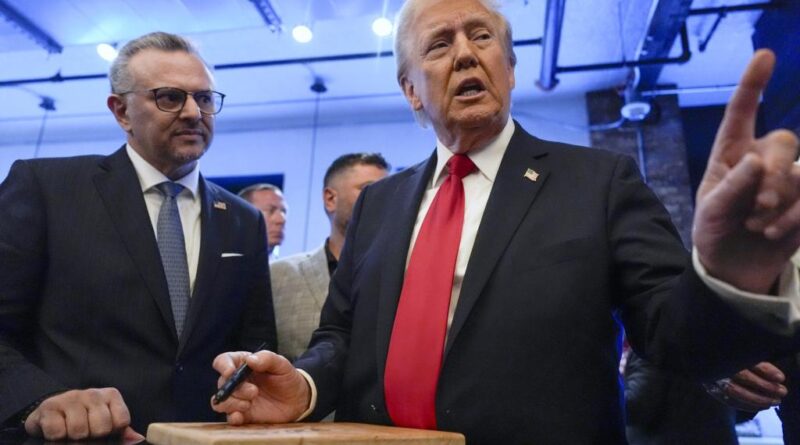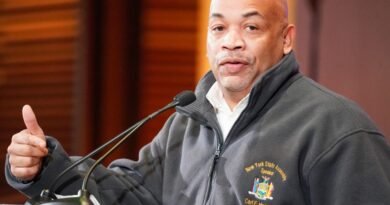With Fewer Hurdles Than in ’26, Trump Has Plenty of Opportunity Ahead

It’s not 2016 all over again.
President-elect Donald Trump is beginning his term with significantly fewer obstacles compared to his previous victory.
In football terminology, he’s got a lot of open field ahead of him.
In nautical terms, the path appears clear.
In political terms, this might not be a honeymoon phase, but there’s certainly no one throwing any furniture around.
Of course, there are numerous possible setbacks.
Some of Trump’s more contentious cabinet selections could cause issues once confirmed (does anyone seriously think that RFK, Jr.’s stint at Health and Human Services will be smooth and uneventful?).
Republicans only have a slim margin of two votes to spare in the House.
Events will play a significant role, as will Trump’s unpredictable nature.
However, the political landscape is distinctly different from eight years ago.
When Trump won in 2016, the shock was so severe that the political system reacted with great intensity.
Trump was perceived as a virus, with every system response rallying against him, from activists in the streets to the FBI director.
This time, though, the response is much more subdued.
In spite of all the dire warnings about an impending threat to democracy, former top Kamala Harris advisors discussed how they could improve in future elections on the podcast “Pod Save America,” indicating there will be a next opportunity.
Despite assertions from his adversaries that Trump cannot be “normalized,” he has become an undeniable presence in American politics for nearly a decade and may continue to shape the Republican Party long after his second term concludes.
Whether one likes it or not, Trump is part of the mainstream.
He shows up at quintessentially American events — such as football games and MMA fights — and receives applause.
He enjoys McDonald’s.
He is a component of pop culture.
This time, unlike 2016, there were no protests following his election victory, nor attempts to persuade so-called faithless electors to block his inauguration.
There isn’t an air of illegitimacy surrounding his success.
He secured a more decisive victory than in 2016, winning the popular vote and leaving his opponents unable to argue that he only triumphed through the quirks of the Electoral College.
There hasn’t been a widely accepted conspiracy theory suggesting his victory resulted from collusion with a foreign adversary.
Moreover, Trump is no longer burdened by an unfounded investigation.
The Russiagate inquiry marred the early years of his first administration.
Currently, the legal clouds are lifting.
Whereas Special Counsel Robert Mueller was gearing up as Trump took office in 2016, Special Counsel Jack Smith is wrapping up his investigation now.
As Trump begins his second term, he will face fewer legal constraints than he has in years.
In 2016, Trump was elected despite facing a significantly unfavorable polling rating.
This time, he approached a more balanced favorable/unfavorable rating in pre-election surveys and has gained even more support since.
According to a recent CBS poll, 59% of people approve of his transition efforts.
If Trump appeared to have a strong headwind during his initial election, this time he has the wind — or at least a nice breeze — favoring him.
Trump is already overshadowing the incumbent president, who, aside from the pardon of his son, has nearly vanished from the public eye.
When Biden exits the stage, he won’t be claiming that Trump stole the election from him, like Hillary Clinton did.
If Biden has any bitterness, it will likely stem from the political maneuvering that denied him the Democratic nomination he had already secured.
None of this guarantees Trump will have a smooth first two years in office.
However, the circumstances appear to be much more favorable for him compared to eight years ago.
Twitter: @RichLowry



